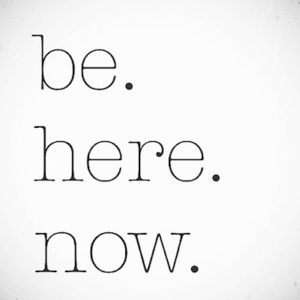The Ego is a ruthless attention seeker. It drives our mind down all manner of non-productive paths just to get the attention it craves. And one of the ways it does this is by creating problems for the mind to solve. The solution, in order to promote silence, is to focus on NOW.
Our brain is a complex system and is, in a sense, three brains in one. Paul MacLean put forth the three brain model, which he developed in the early 1950s. His theory of our “three” brains became very popular in the ‘60s and, as with all things, has been modified over time in the light of new knowledge and understanding.
Nevertheless, for our purposes here, his model works just fine. The oldest part of our brain is the “reptilian brain”. The brain stem and cerebellum. It controls vital functions and basic responses: temperature control, fight-or-flight, hunger, defending territory, keeping safe, fear. This part of our brain tends to be rigid and compulsive. Our obsessions originate here.
The next development, evolutionarily speaking, was the limbic brain. This brain first emerged in early mammals. We could call it the “mouse brain”. Or the dog or cat brain if you prefer. This brain records memories of behaviors that produce agreeable or disagreeable results. The emotions are found here. Value judgements originate here, as well; which we often make without being consciously aware we’re making them — and they exert a strong influence on our behavior.
The final brain is the cortex or neocortex. The “primate brain”. This is the brain that differentiates primates from all other mammals and humans from primates. This is where language, abstract thought, imagination, and consciousness originate.
Okay, back to the clever Ego. The Ego is something we make up. It is a construct of who we think we are, or believe we are.
The Ego is not me and it is not you.
The Ego is what creates the emotional drama or firestorms in our lives. Why? Because it wants to be the center of our attention.
The Ego is the culprit that robs us of inner silence and peace of mind. It does this by creating false problems for us to solve. This is easy to do because the “primate brain” is a problem solving machine and is easily tricked by the Ego to solve non-problems: problems that are imaginary and don’t exist. Such as worrying about the future that hasn’t happened yet and obsessing about the past we can do nothing about.
For example, your boss, or spouse, or best friend chews you out for some reason. The Ego goes to work. It draws on your needs, your fears, your sense of fairness — and creates drama so you keep chewing on the event. Criticizing the other and defending yourself. Excusing what you did to set them off. Justifying it, making it “right”.
There’s no silence in your mind, for a raging argument is going on in your head. There’s no peace in your soul, because you feel hurt, wounded, mistreated. You’re a victim. And undeservedly so.
And the Ego is doing its happy dance.
Why? Why does the Ego want drama? Discord? Mental noise?
Think for a moment of a time where you weren’t thinking of anything. Of a time when you were filled with peace. Doesn’t matter how long or short the time was, or what was going on to induce the peace. Just think about it for a moment.
Where was the Ego? It wasn’t around, was it? There was just You and you were enjoying the tranquility. All was right in the world.
The Ego is the “Big I” and it doesn’t want competition for center stage.
The way to deny the Ego, the Big I, center stage and get drama out of your life is to focus on NOW.
Eckhart Tolle’s book The Power of Now was a vital contributor to my current thinking, as was his follow-up book A New Earth. Tolle didn’t come up with anything new. Mystics have been saying the same things for millennia. It was how he said what he said.
Another book that was very influential was Games Zen Masters Play: Writings of R.H. Blyth, edited by Robert Sohl and Audrey Carr. Sadly it’s out of print and used copies tend to be expensive. The book, though, is nonpareil.
Focusing on NOW is the secret weapon to getting the Ego off stage, to getting control of your life back, and to experience ongoing inner silence and peace.
There are many techniques for focusing on NOW and shoving the prima donna Ego off stage. Many books have been written detailing these techniques. Next week I’ll talk about my favorite. Today, I’ll give you a simple suggestion that works very well.
Your boss has just chewed you out. And you think unfairly. He or she didn’t even hear you out! You’re seething with anger. No silence in your mind, is there? The debate is still raging in your head as you go back to your cube or work station.
What do you do? Continue to seethe? Continue to play out the scene in all of its unfairness? You could, although it’s not a good idea. Such raging emotions are bad for you physically and emotionally. They cause high blood pressure, increase stomach acid, give you a headache. The reptile brain is preparing us to flee or fight. We’re keyed up. We can’t think straight. Not a good situation to be in.
If you can, go to a different location. One that is fairly quiet. If you can’t do that, take a bathroom break and sit in a stall. If that’s not possible, that’s okay. Stay in your cube or at your work station. What you do next is what’s most important.
Take a deep breath, hold it a moment, exhale. Repeat until you begin to feel at least some of the anger drift away. Then focus on NOW. The very moment of time you’re in. The quiet around you or the task at hand, whatever your job entails. If your mind drifts, say “no”, and bring it back to NOW.
This practice is no different than what an actor or actress does going on stage. I am waiting in the wings. My cue is coming up. I take a deep breath, empty my mind as I exhale, take another breath and become my character. When I hear my cue, I go out on stage. I’m no longer me. That person and his problems were left in the wings. I’m now the character I’m playing.
It’s the same when your boss chews you out. Or you have a fight with your spouse. Or something happens to upset you. Empty yourself of Ego and let the real You take over. And of course this is something that takes work, until you do it often enough for it to become habit.
As always, questions are welcome. And until next time, take time to silence the Ego and enjoy peace.
Share This!
